You may not have heard of David Solnit, but chances are you have seen his creations on the evening news or in major publications around the world. Not in the conventional “look at the maestro’s work” sort of individualized way we’re used to acknowledging art, but in a more “wow, where did this come from?” expression of collective wonderment. Whether David’s craft appears to us in small bits from the bottom of his messengers’ feet or in a large mural from high above, they are almost always collaborative, interconnected, and evocative.
While David has been involved with most mass mobilizations in the United States over the last 30 years, the first time I personally encountered his work was in January 2009, at the end of the Bush oil war era and on Barack Obama’s inauguration day, when San Francisco residents were treated to this little “THROW A SHOE AT BUSH (and send an antiwar message to Obama)” carnival booth in honor of Iraqi journalist Muntadhar al-Zaidi’s famous “farewell kiss from the Iraqi people” to George W. Bush.
As the climate movement kicked into high gear around 2010, David’s fingerprints were popping up at many of the marches and rallies, even though I didn’t know it at the time. As a documentarian of the nascent movement, I just felt lucky to have such vivid imagery to go with my blog posts and articles, without thinking too much about the kind of creativity, organization, and preparation it takes to make these storytelling images possible. Only after I finally met him in person did I realize that he’d been a frequent protagonist in my photos, as a cameo in his own performance art creations.
I first met David in person in the run-up to biking the math of climate change to Chevron Headquarters in May 2013. Prompted by Bill McKibben whom I had interviewed during his “Do the Math” tour, I had decided to organize a citizens’ bike ride to deliver the troublesome numbers of climate change to Chevron’s annual shareholder meeting.
On Bill’s advice, I got in touch with 350 Bay Area to plan the ride. During a meeting with local groups that had been fighting the company’s dirty refinery for years, David was there to coordinate how to deliver our message most effectively. It may seem obvious in retrospect, but it didn’t occur to me at the time that when you’re on a bike it’s really hard to carry or attach a sign, or for that sign to make much of a splash. To the veteran of creative mobile advocacy, the solution was a no-brainer: flags!
Next thing we knew, a bunch of us found ourselves in an Oakland park on the Saturday morning before the shareholder meeting for a flag making party, painting our messages on yellow scrap textiles before taping them to bamboo sticks. Not only was the whole thing a total hoot, but all the local newspapers ended up using the bike flag photos for their coverage of the event, simply because the imagery of a bunch of cyclists demanding a less fossil fuel dependent world drives home the point (pun!) very powerfully before the first word is ever put to ink.
In the years since I’ve become more and more attuned to David’s work. There really is no limit to what media he might use. Whether it’s two-dimensional, 3-dimensional, or a constantly moving object, you kind of know it has David’s signature if it makes you gasp or spontaneously raise your fist in the air.
Quite often, if you make it to the front of a march, you’ll get to relish in a sea of interconnected, multiple media messaging in the form of signs, banners, and puppets.
The puppets in particular are one of the most powerful communications tools in the creative arsenal. A carpenter by trade who says he’d rather use his hands and engage in face-to-face interaction all day long than spend an hour looking at a computer screen, David has been instrumental in popularizing the use of giant puppets in mass demonstrations since building his first specimen at a Hiroshima Day demonstration in 1989. Created from cardboard boxes, sticks, papier mache, cloth and house paint, using a utility knife, plier-stapler, and paint brushes, “the puppets are big, spectacular, and help hold space, amplify our messages and assert our presence in the streets,” he says. “They are attention-getting and make for good photos and media, with thoughtful imagery and signage, and can communicate strong clear messages. They are also festive and fun and give spirit to a public gathering or rebellion.”
Who wouldn’t look up, listen, and learn in the presence of these larger-than-life creatures?
And yet, despite all the remarkable creative dedication to uprooting the status quo of unjust, out of balance human and natural ecosystems, this larger-than-life puppet maker would be the first one to tell you he is just a small thread in the fabric of people powered change. In many ways, the collaborative and interdependent nature of pulling off a large scale act of disruptive performance art embodies the re-imagined society it seeks to inspire: Us before me, listening before talking, participation before consumption.
It is no surprise then that a big part of David’s work is to pass on his knowledge and tools of the trade wherever they are sought, to broaden and strengthen the tapestry of a movement to create the change we wish to see in the world. Like the mobile screen printing workshops he brought to Chico for the Green New Deal roadshow.
Speaking of the Green New Deal, it should come as no surprise that David has been lending his organizing experience toward realizing the vision since it first captured our collective imagination. From the moment shortly after the 2018 midterm elections (really, it’s not even been a year!) when Rep.-elect Alexandria Ocasio-Cortez and young Sunrise activists marched on Democratic leader Nancy Pelosi’s office to demand a Select Committee for a Green New Deal, the creative juices have been overflowing.
Propelled by the urgency of a looming climate breakdown and mass extinctions, this new generation of young and energized activists has given the climate justice movement the kick in the pants it needed. Beyond the Herculean efforts by the Sunrise Movement, local groups like the Bay Area’s Youth vs Apocalypse and global movements like Extinction Rebellion started adding their own fearlessly creative flavor to the party.
Where- and whenever they popped up, you could always count on encountering David’s touch, whether through his signature letter stamps on a big banner or in a direct sighting of the friendly yellow-jacketed elf orchestrating a street conversion from rush hour traffic to beautiful piece of rebel art.
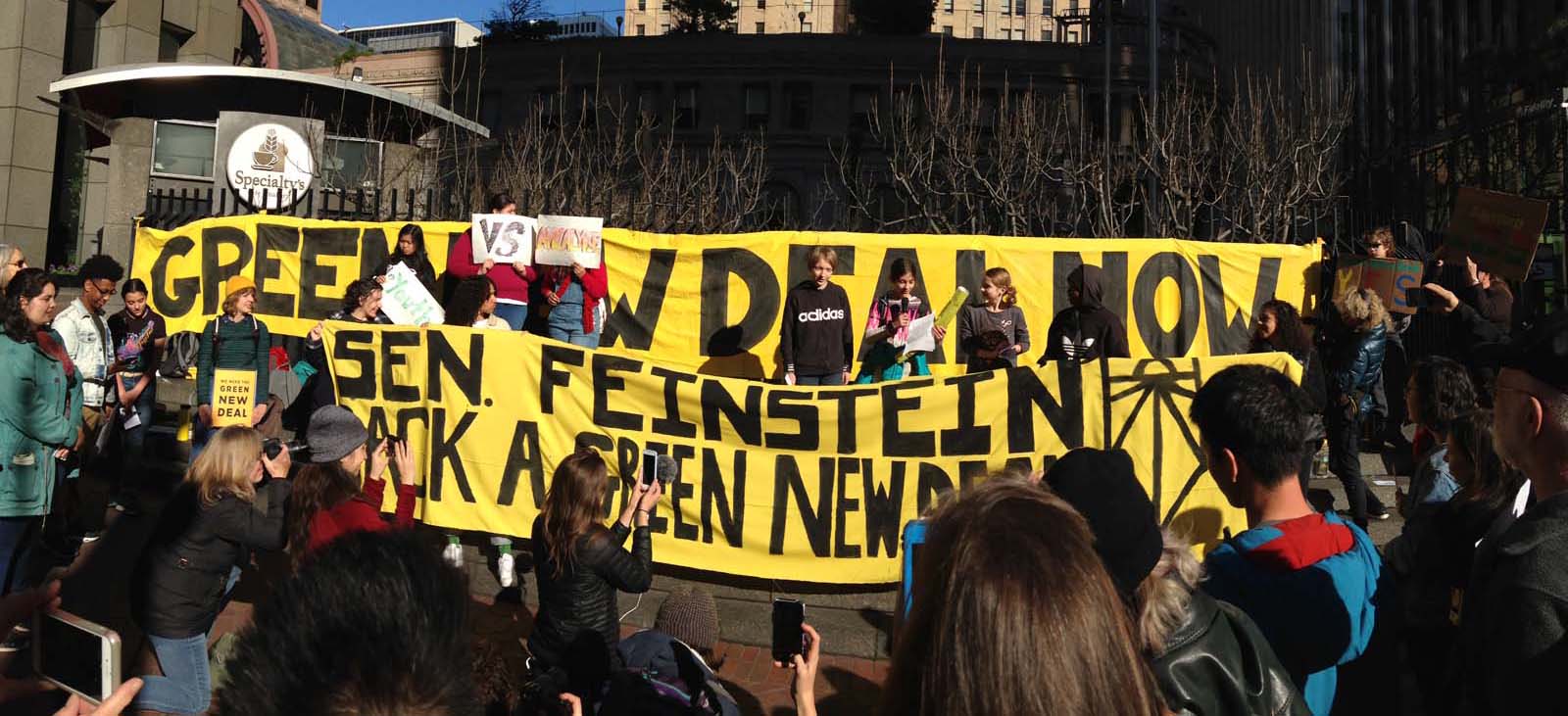
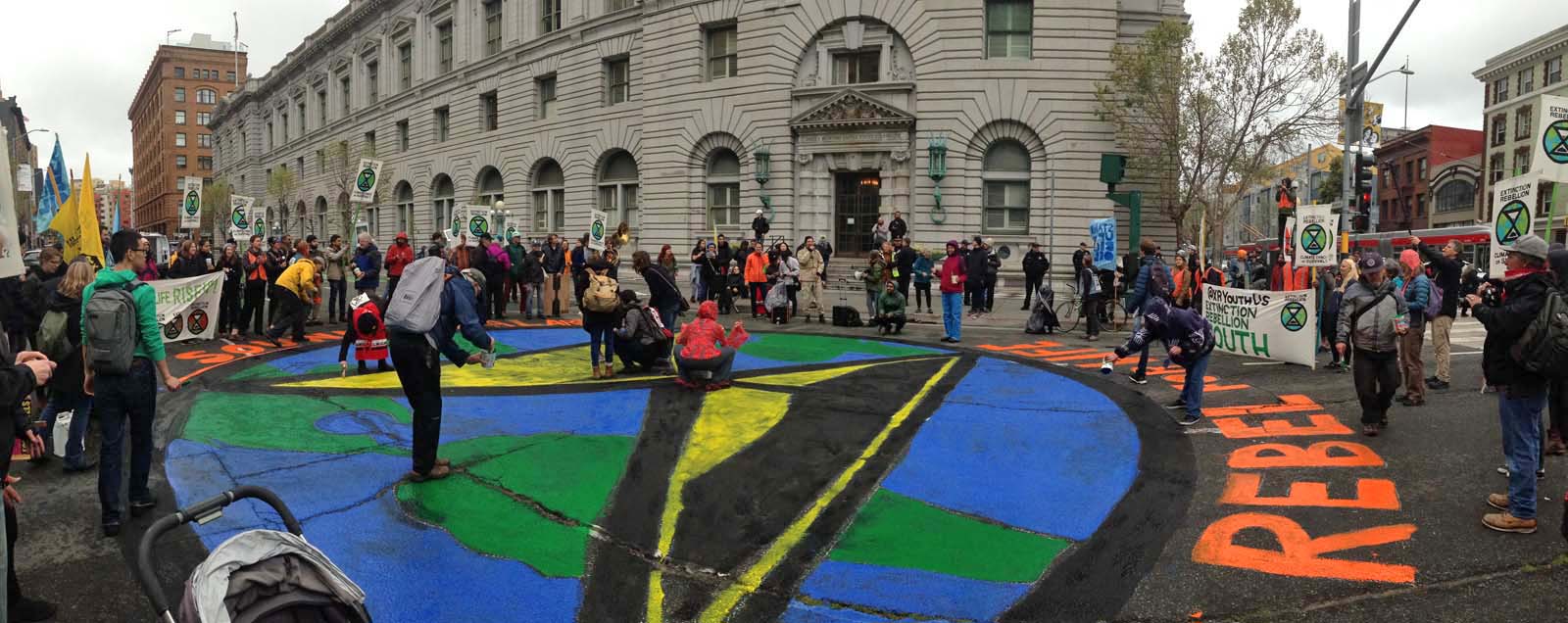
With the mass mobilizations for climate justice and Green New Deal-scale transformations having now gone global and viral as witnessed in massive climate strike mobilizations and the recurring Friday’s For Future walkouts, David Solnit-type ideas and skills for putting art and theater at the center of organizing are in high demand all around the globe.
Heeding the call, David has worked with 350.org to put together art kits full of ideas and tools for power- and colorful demonstrations, including tips on designs you can use, art-making how-to guides, street murals, group photo tips, songs and music tips, and more. Artists from around the world have contributed their art and designs that can be downloaded and printed from anywhere.
In a beautiful presentation of local group efforts in the build up to the Global Climate Strike — Climate Strikes to the Green New Deal: Arts Organizing to Protect the Planet — David writes, “In the battle of the story to win a Green New Deal, the arts may be our sharpest weapon.”
And behold, people everywhere are turning into artists!
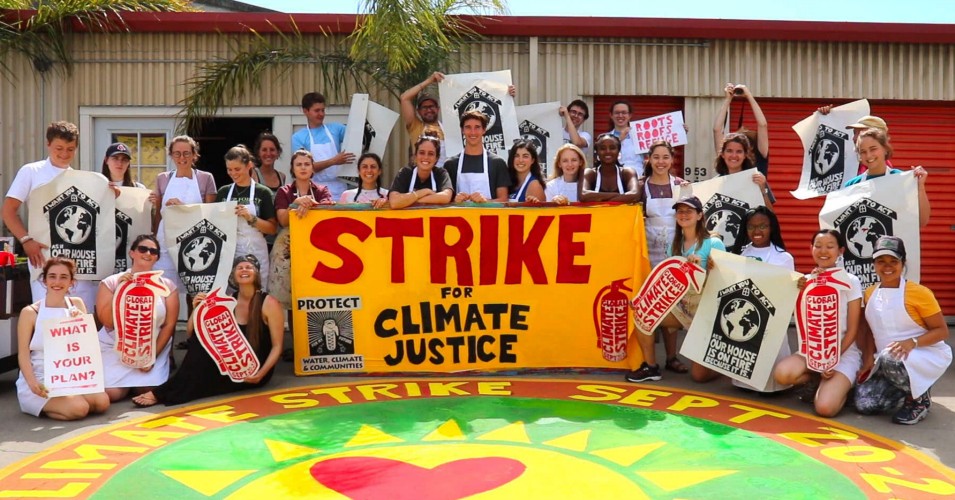
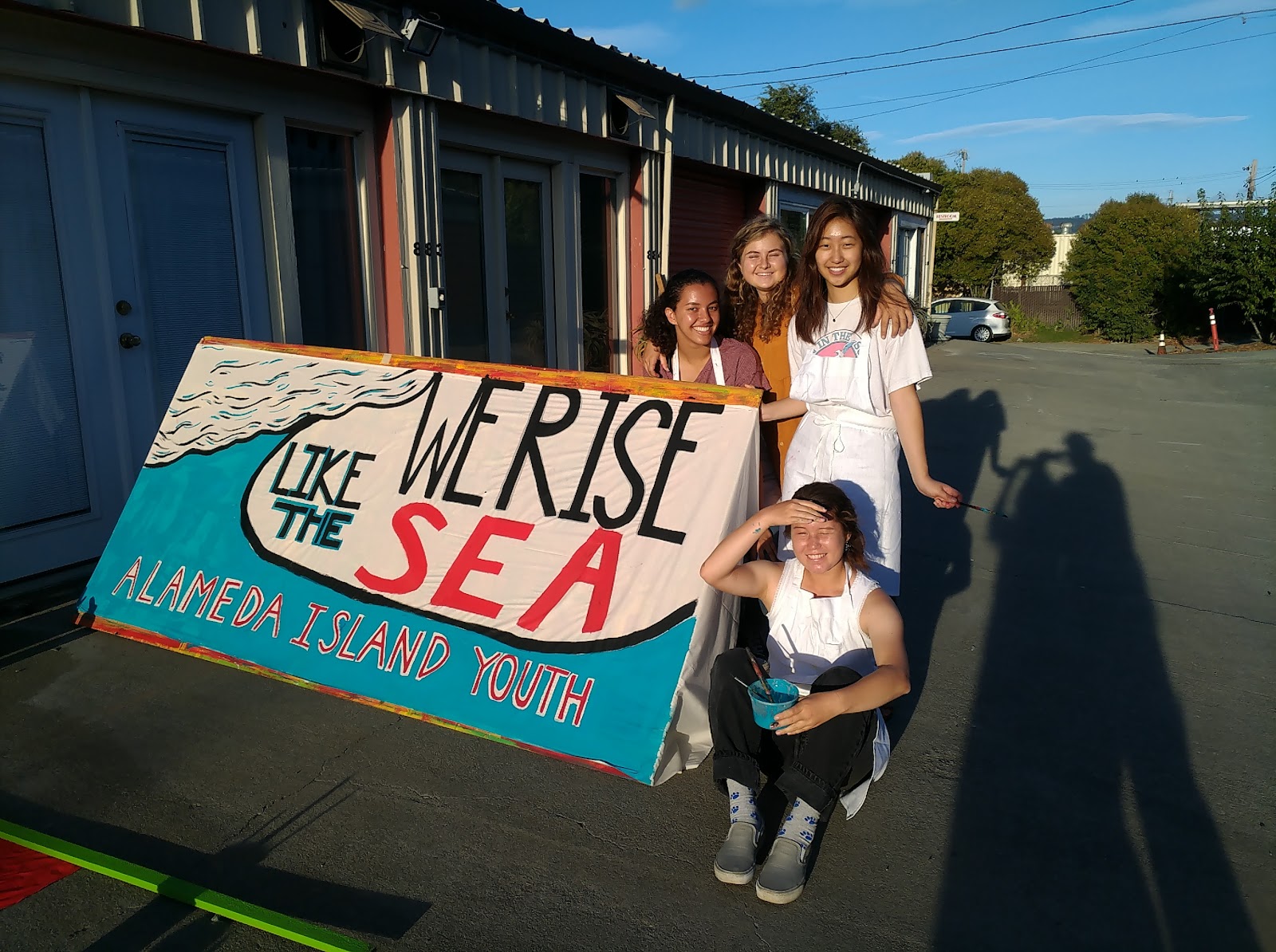
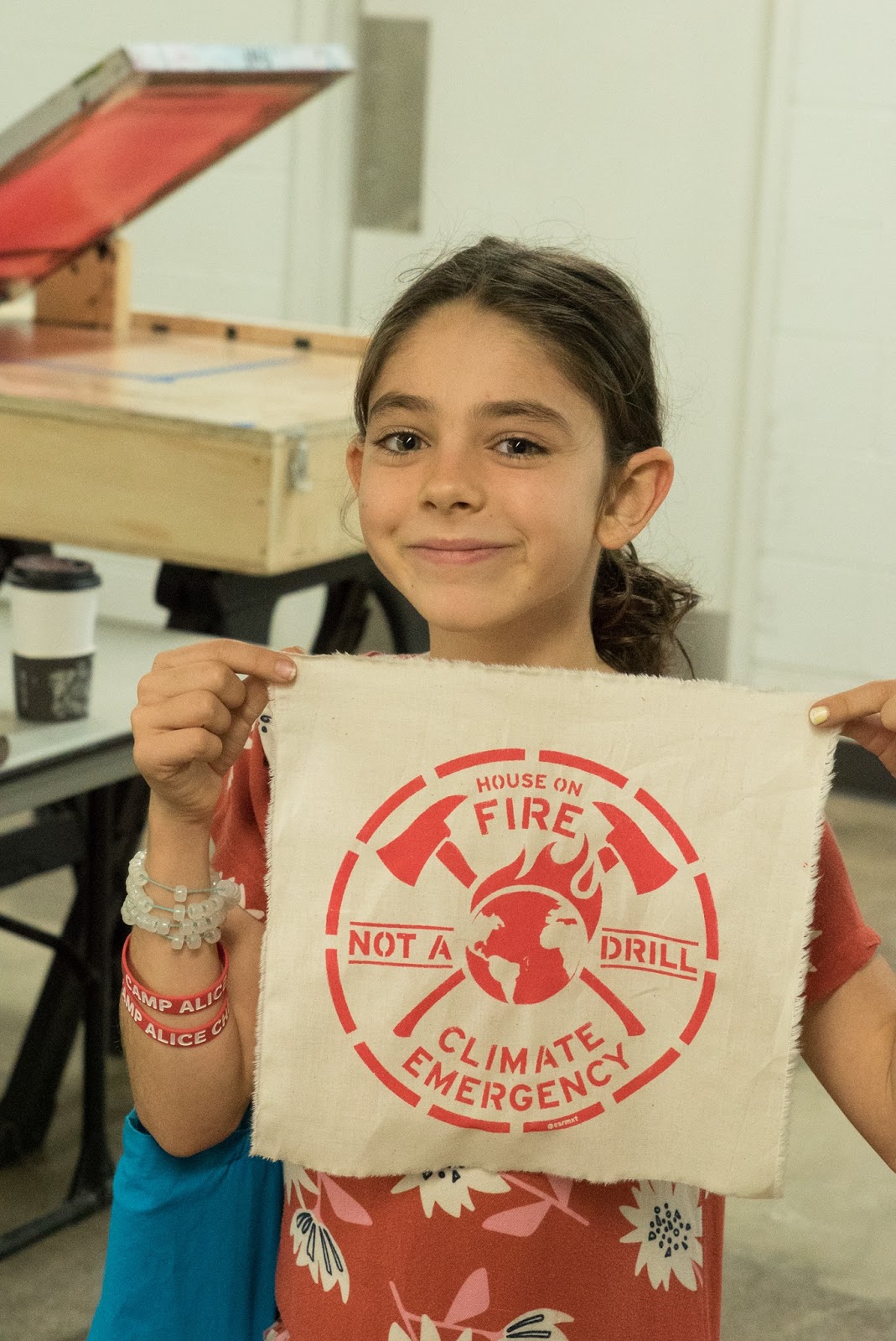
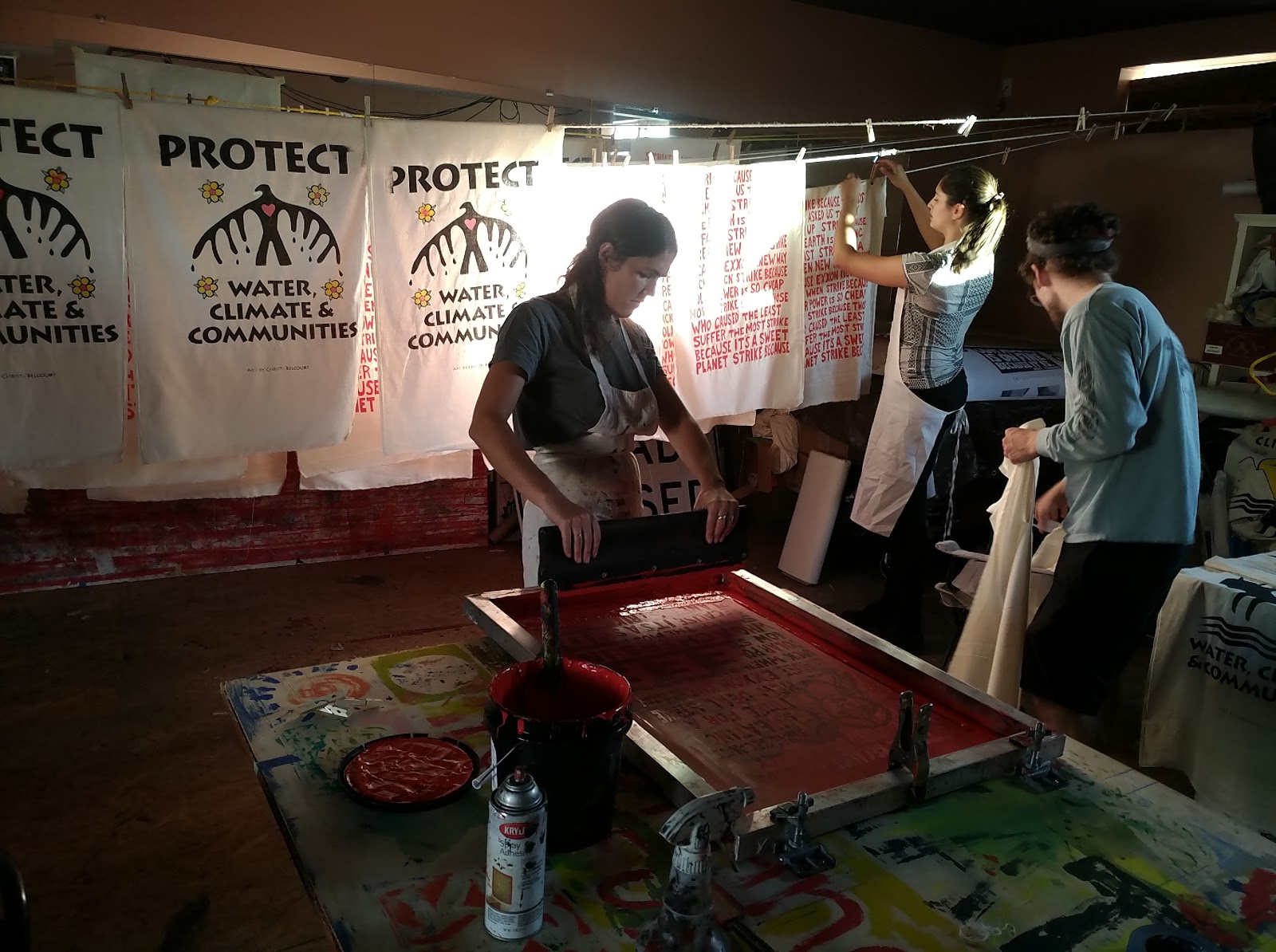
At the same time, artists are contributing their works to anyone willing to disseminate it. The Green New Deal Arts Kit curated by David showcases some truly remarkable posters created by accomplished artists from around North America.
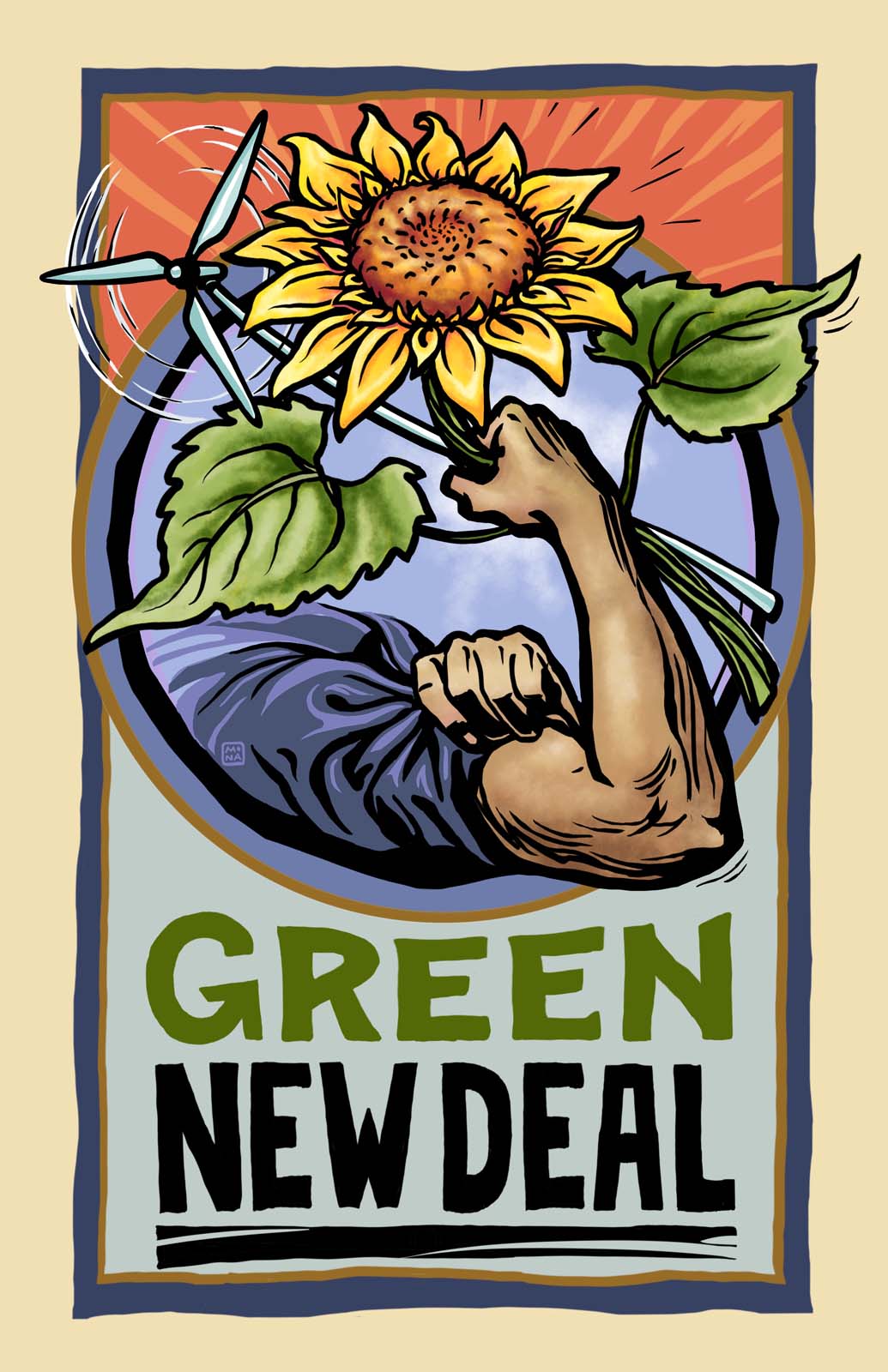
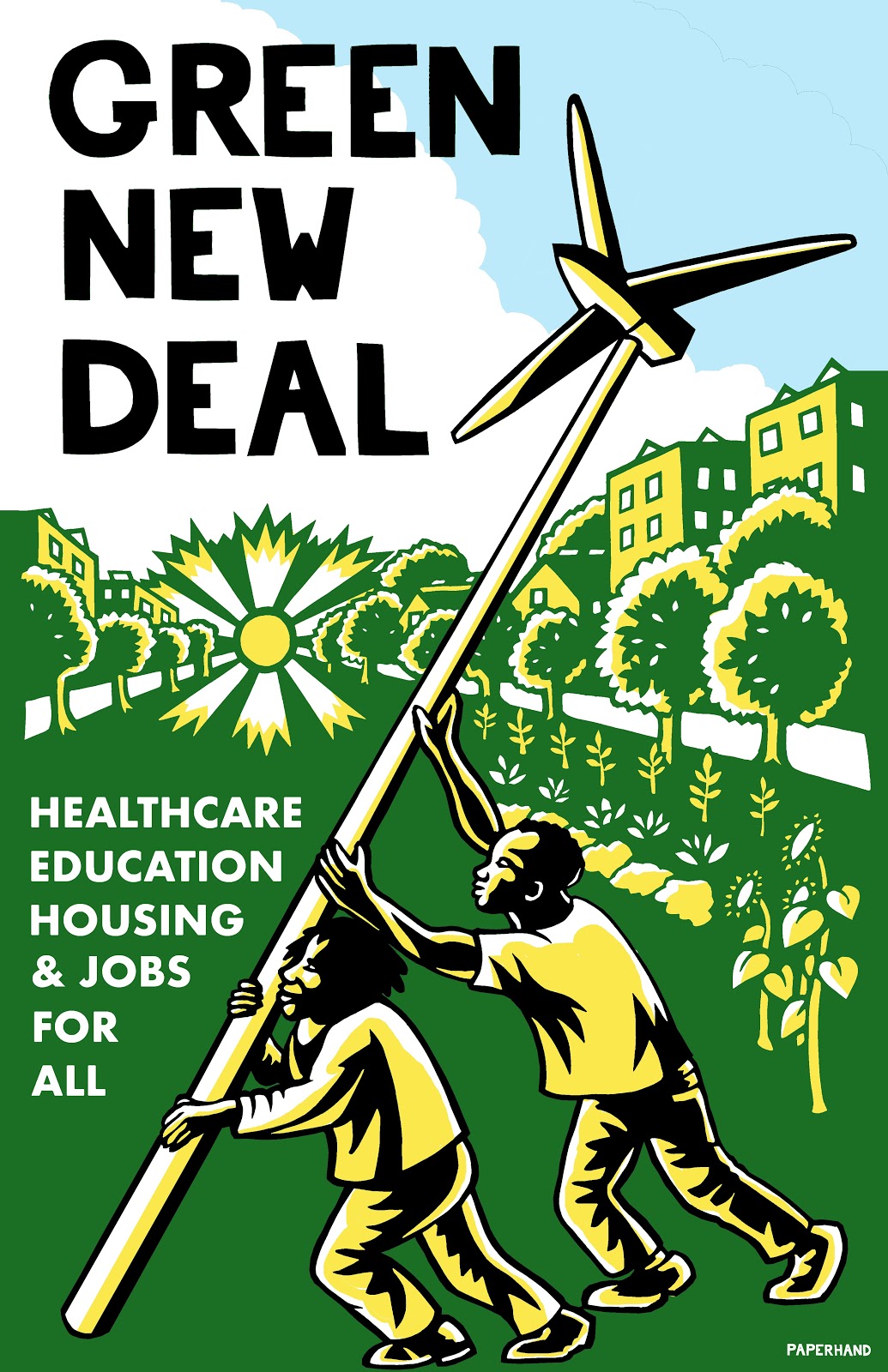
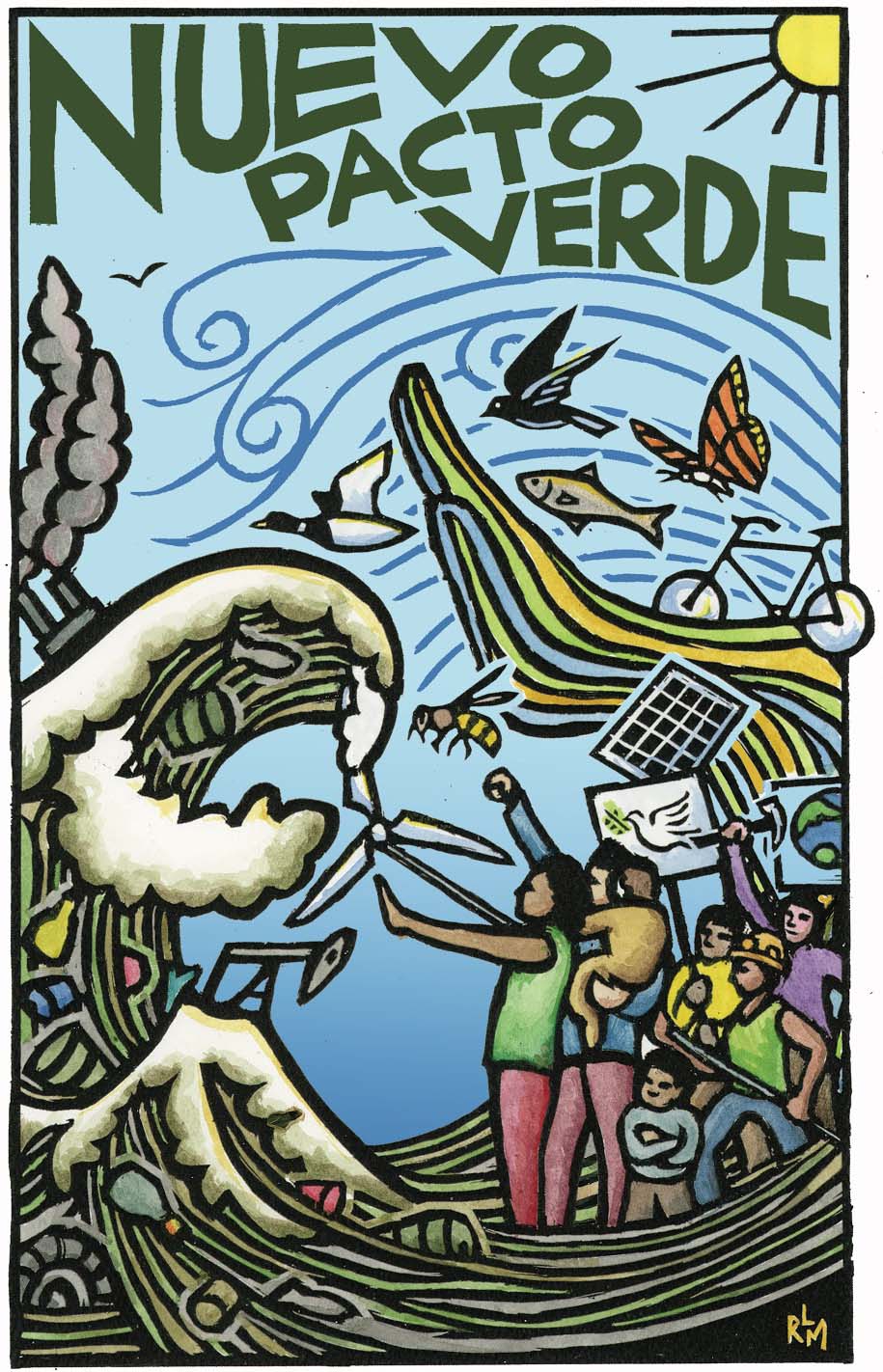
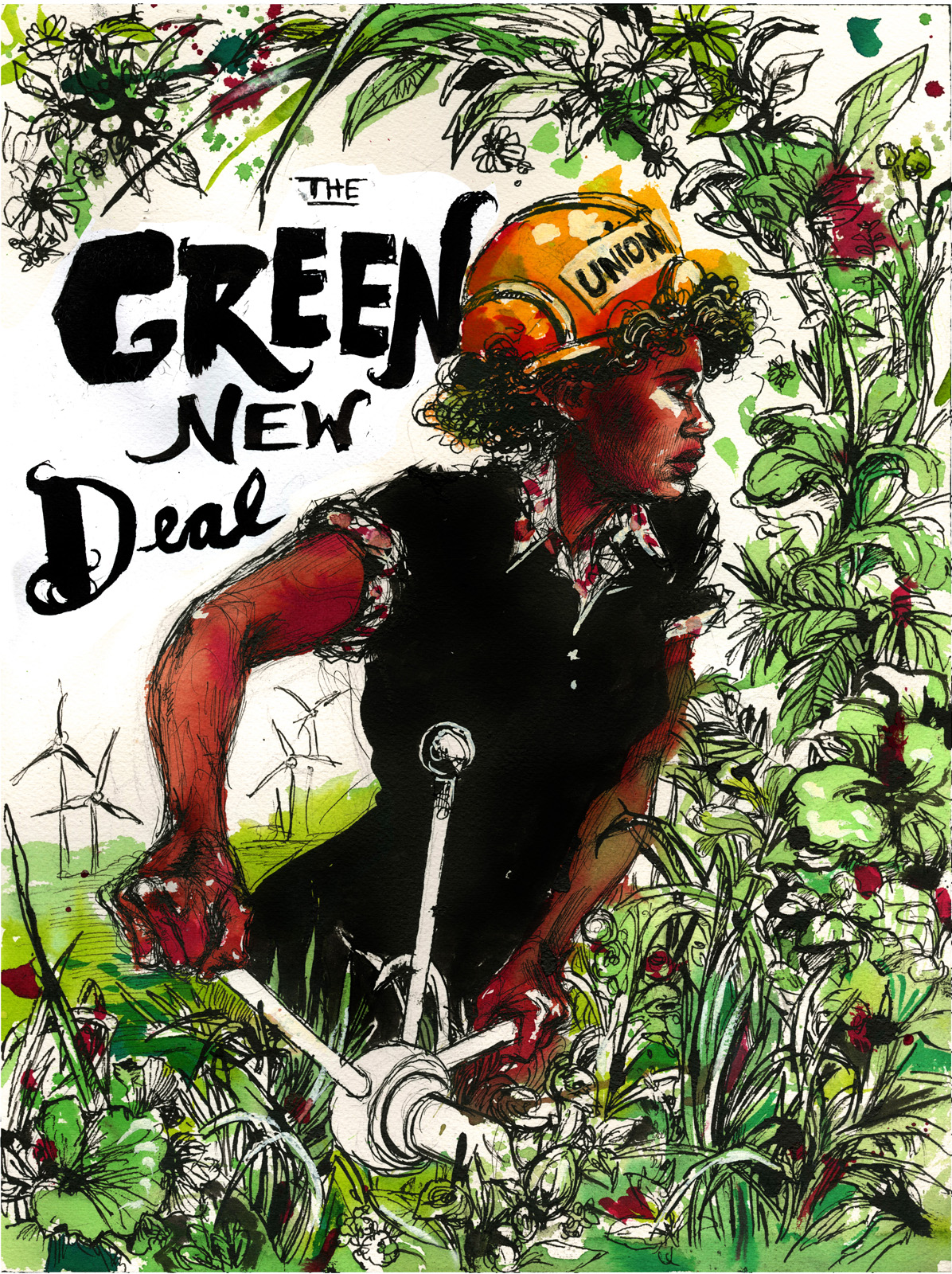
The beauty of these art kits is that they are really just starting points in an organic and interactive process to spark people’s own creativity and imagination, wherever they may be in the world.
For a personal example, to showcase some of the posters from the Climate Strike Arts Kit at our local march in San Francisco, my partner-in-muse Deb came up with the idea of turning ourselves into Green New Deal and Climate Strike sandwich boards. Having used everything from bamboo to reinforced cardboard sticks to hold up our signs in the past, this seemed like the perfect solution to show off our true colors while keeping our hands free to document.
A few 11×17 prints at FedEx Office, some cut up cardboard boxes, a pair of old shoe laces, and we were in business.
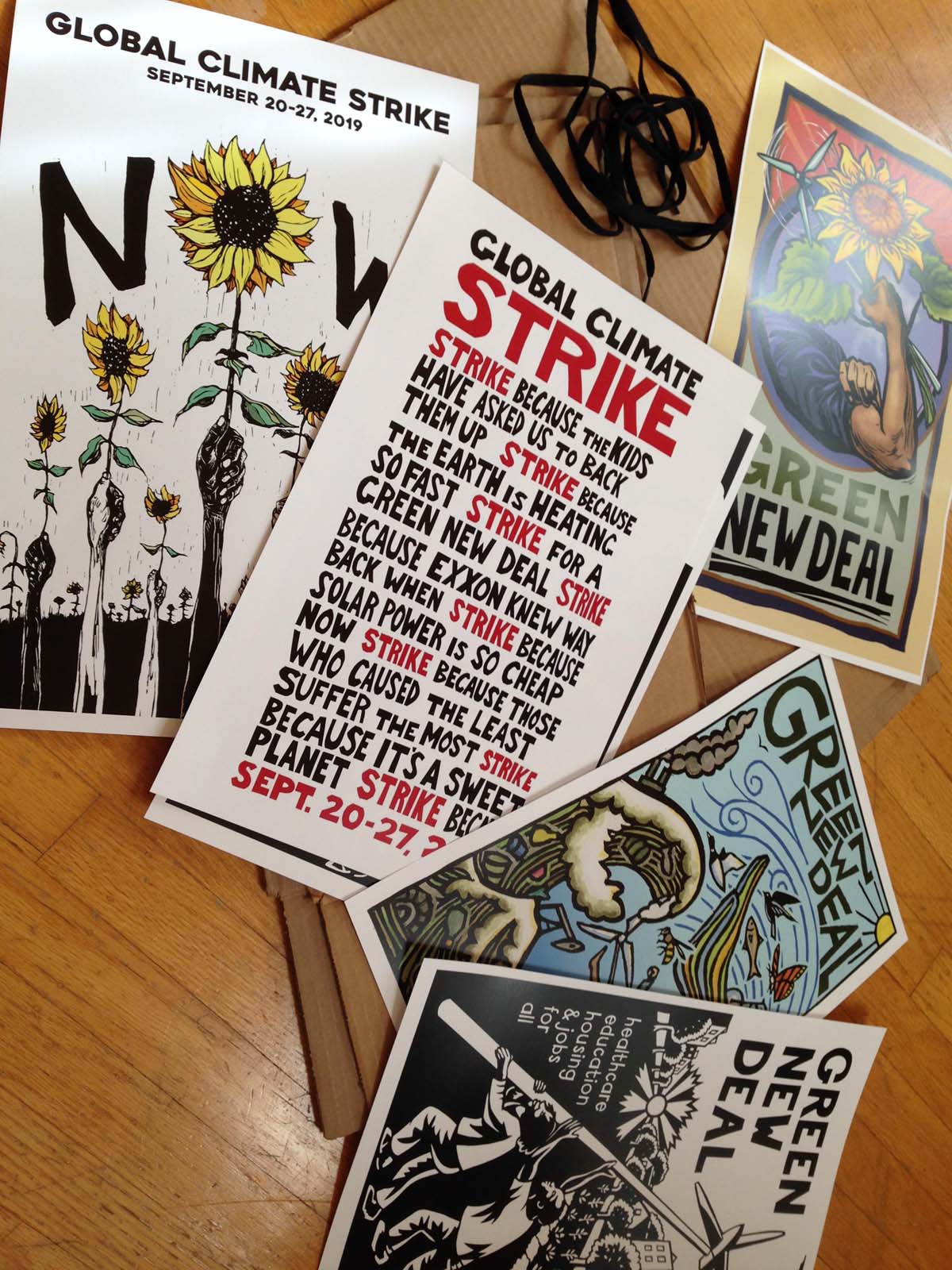
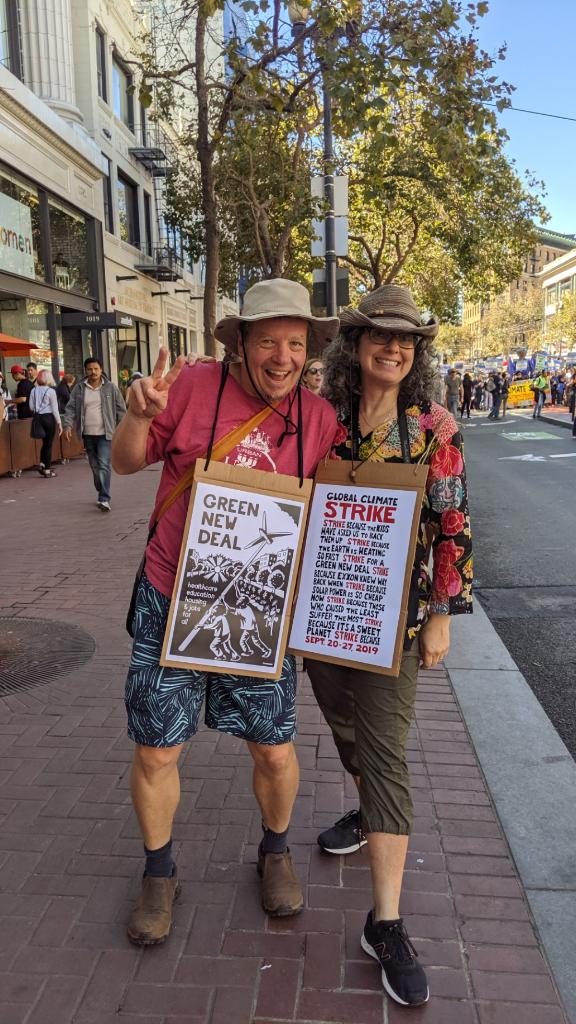
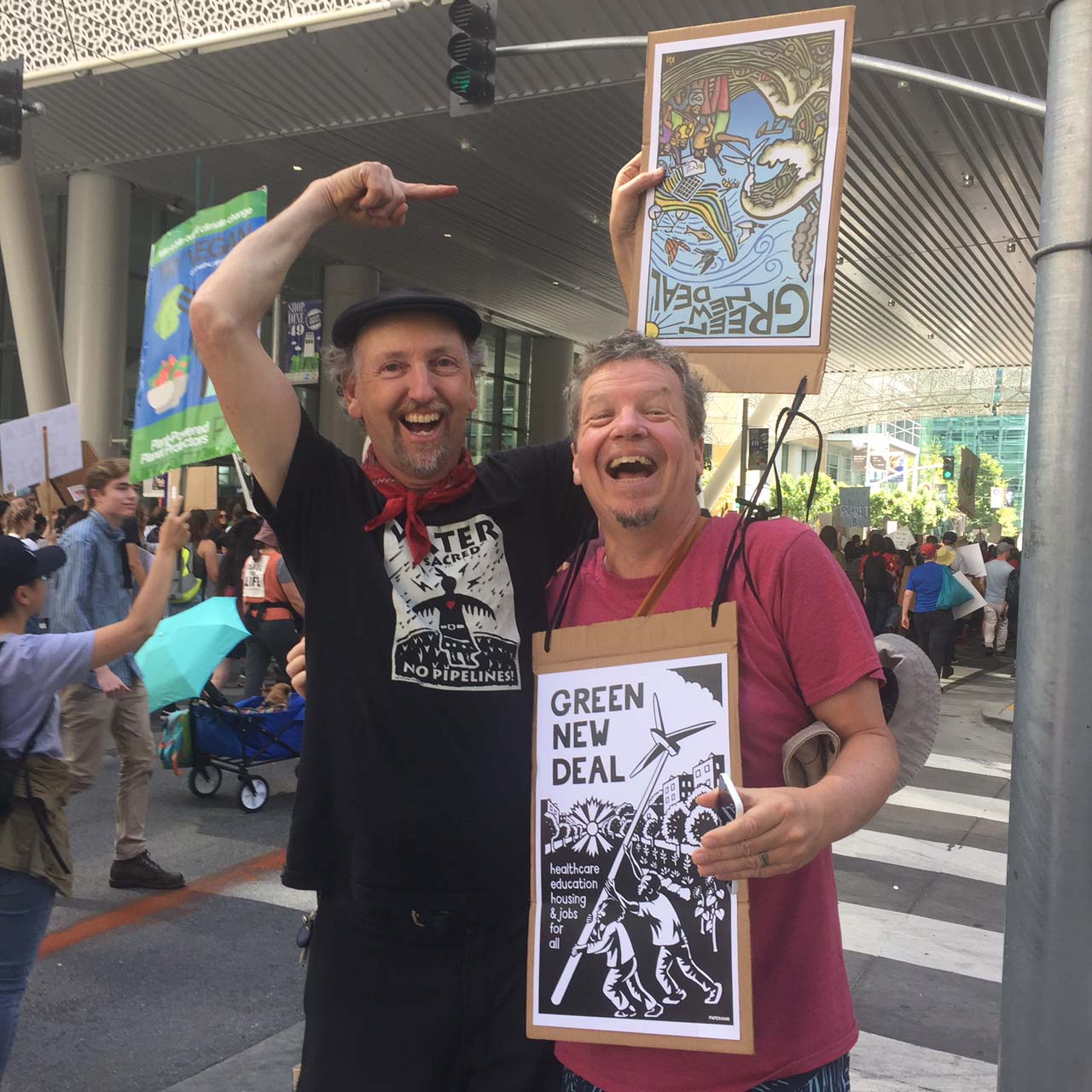
While the random ripples of creative acts inspired by the art kits have become indispensable tools in decentralizing and disseminating the important messages of our time to an ever growing number of communities all across the planet, it’s the big splash collaborative orchestrations planned months in advance I think of as the crown jewel in the maestro’s arsenal of weapons of mass creation.
There’s nothing in sensual impact quite like unannounced larger-than-life collective solutionary installations in busy public spaces. Massive street artworks like the Climate Justice Street Mural Project covering two full city blocks in San Francisco’s bustling Financial District that David helped to coordinate during the Global Climate Strike week are powerful not just because they are large, loud and beautiful, but because they can address a breadth of issues from multiple perspectives that is commensurate with the scope of the problems we’re trying to solve.
With Mona Caron’s poster from the Green New Deal art kit showing up in multiple iterations during the climate strike week and considering that I am writing this for The Art of the Green New Deal journal, it seems only fitting to leave you with a triptych documenting the collaborative process of painting her fabulous Green New Deal emblem onto Montgomery Street and another one of the piece in its final glory. And right in the middle of it — who else could it be? — David.



















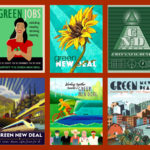
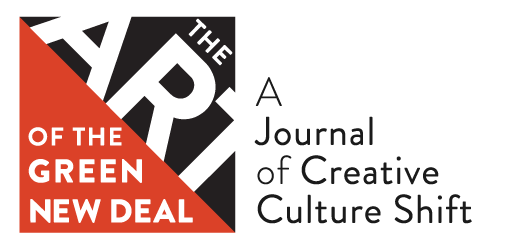






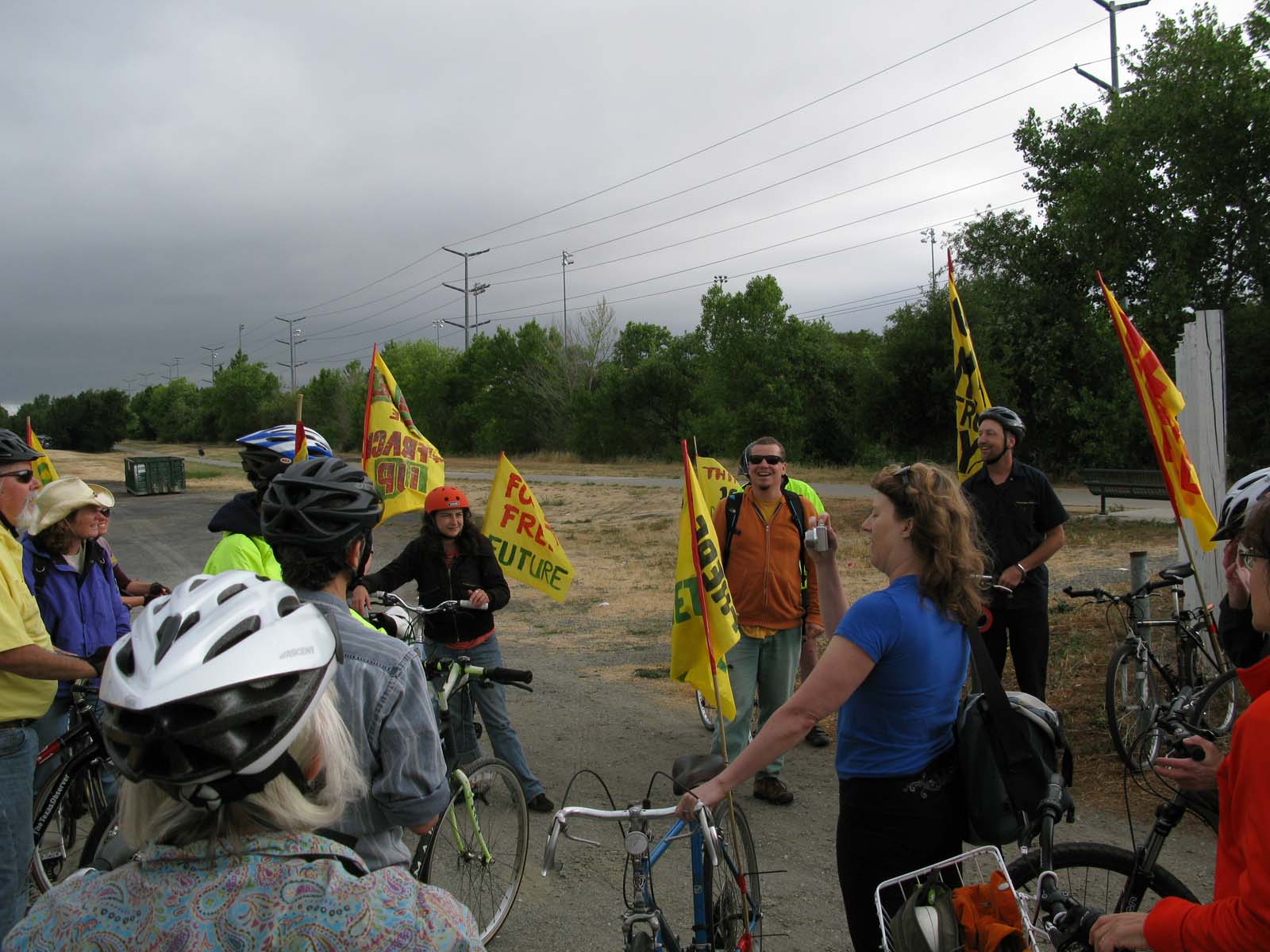

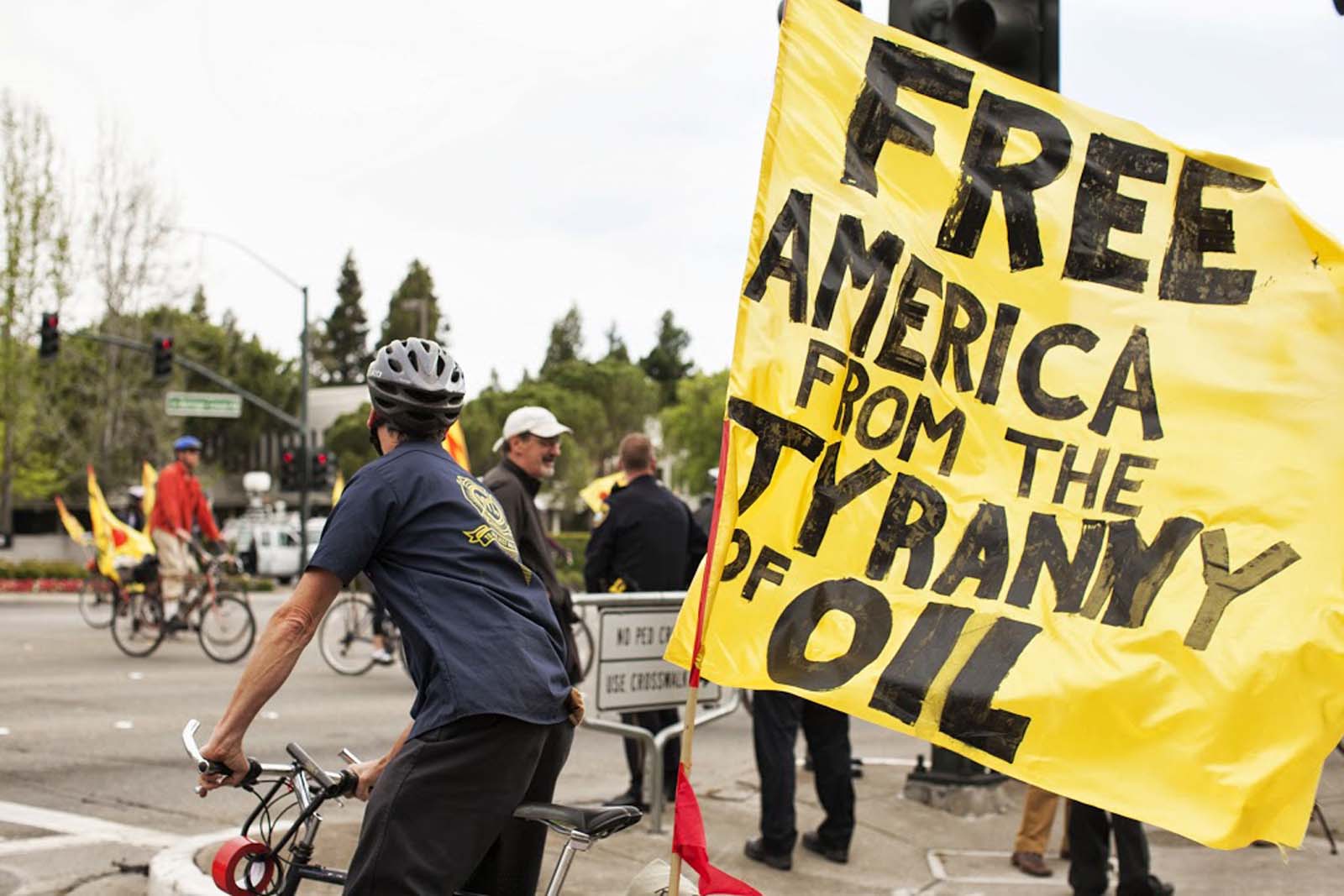






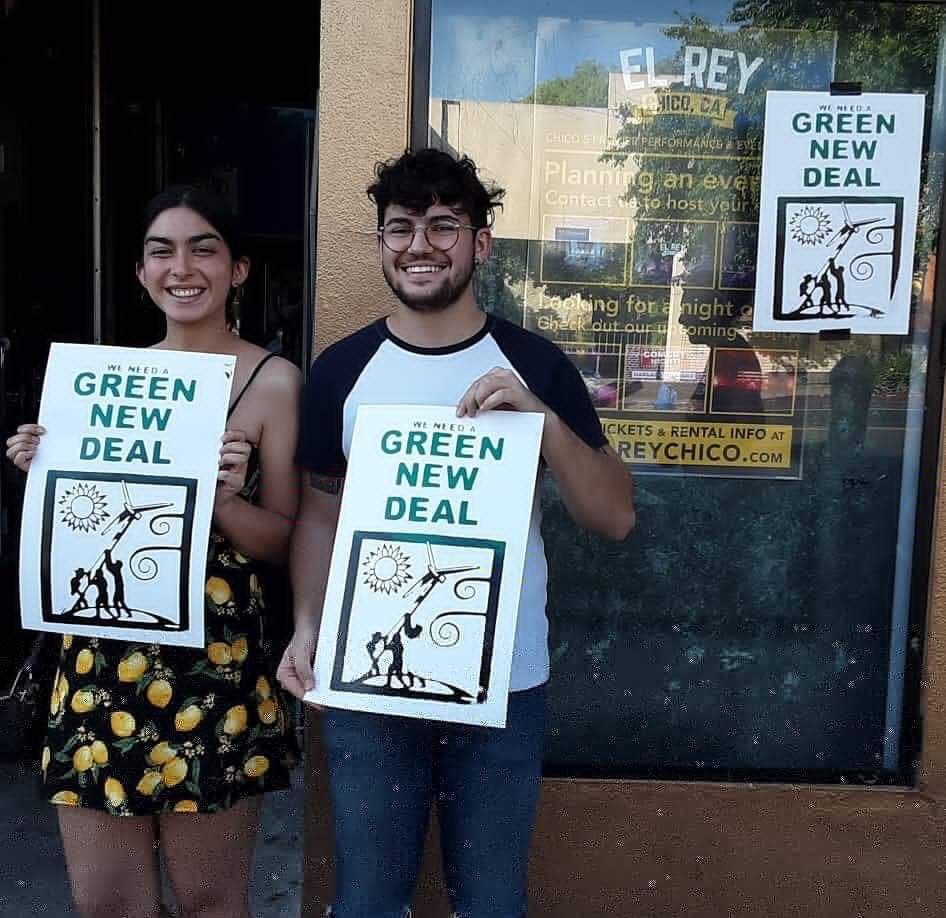






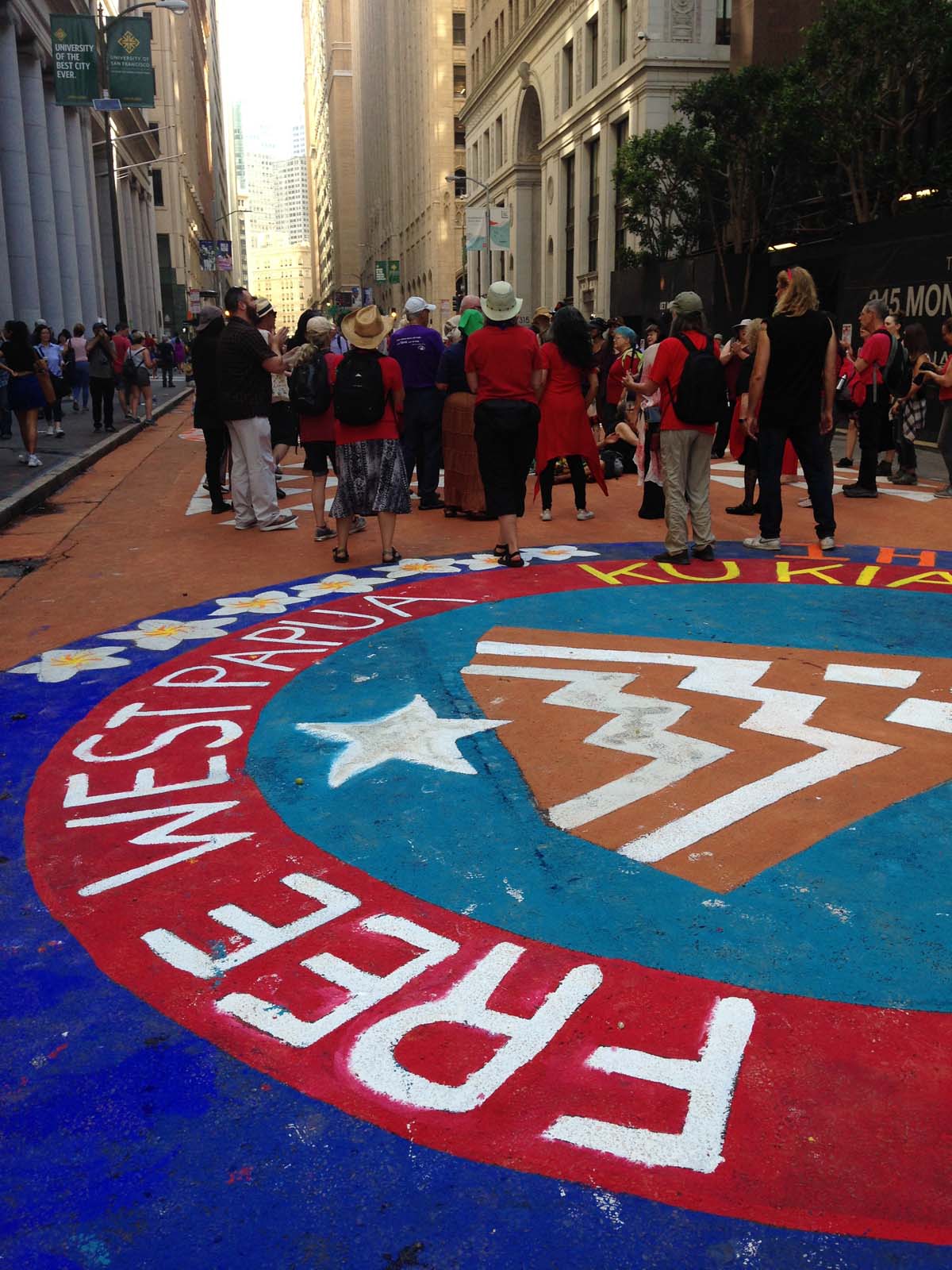
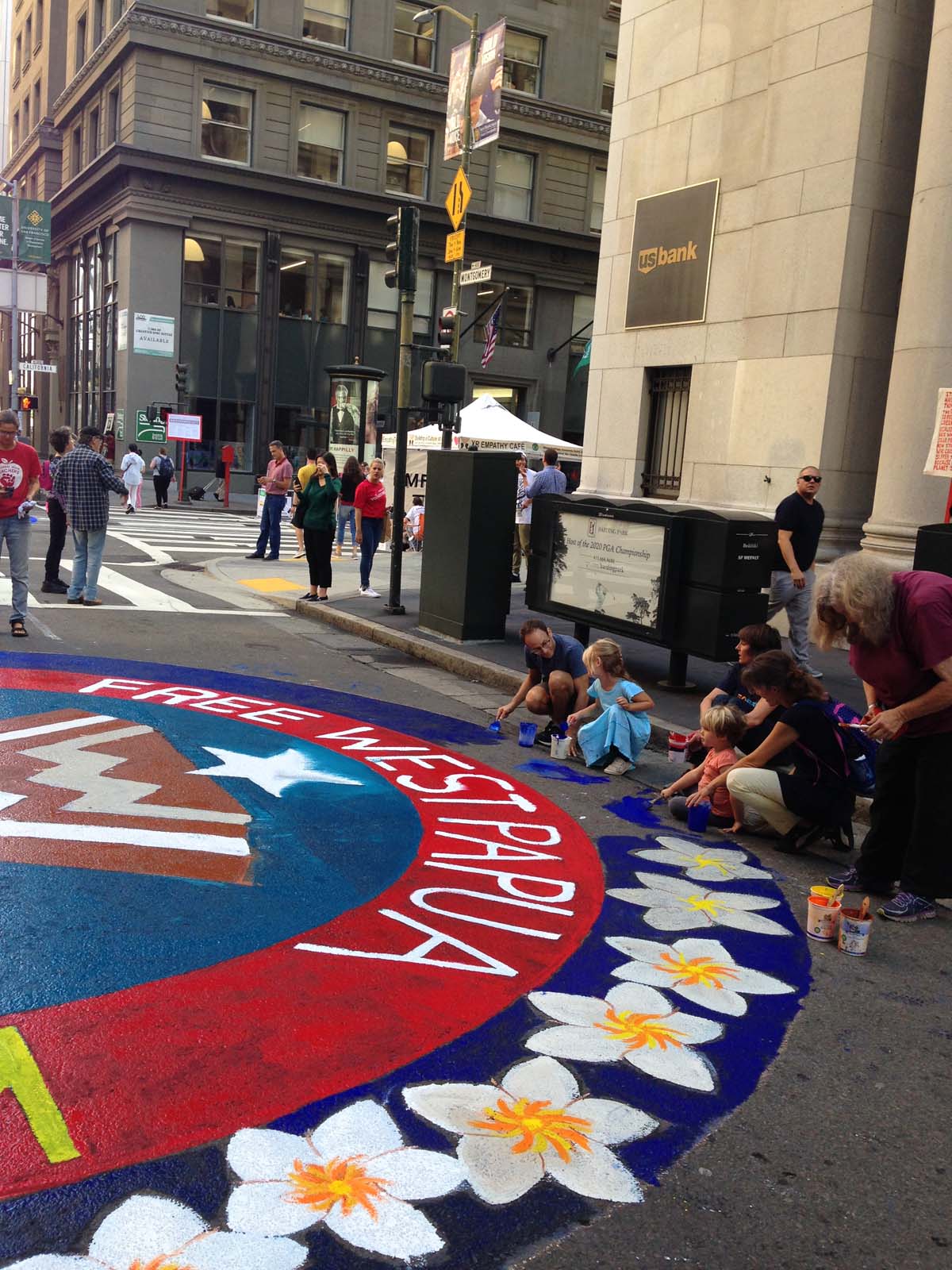




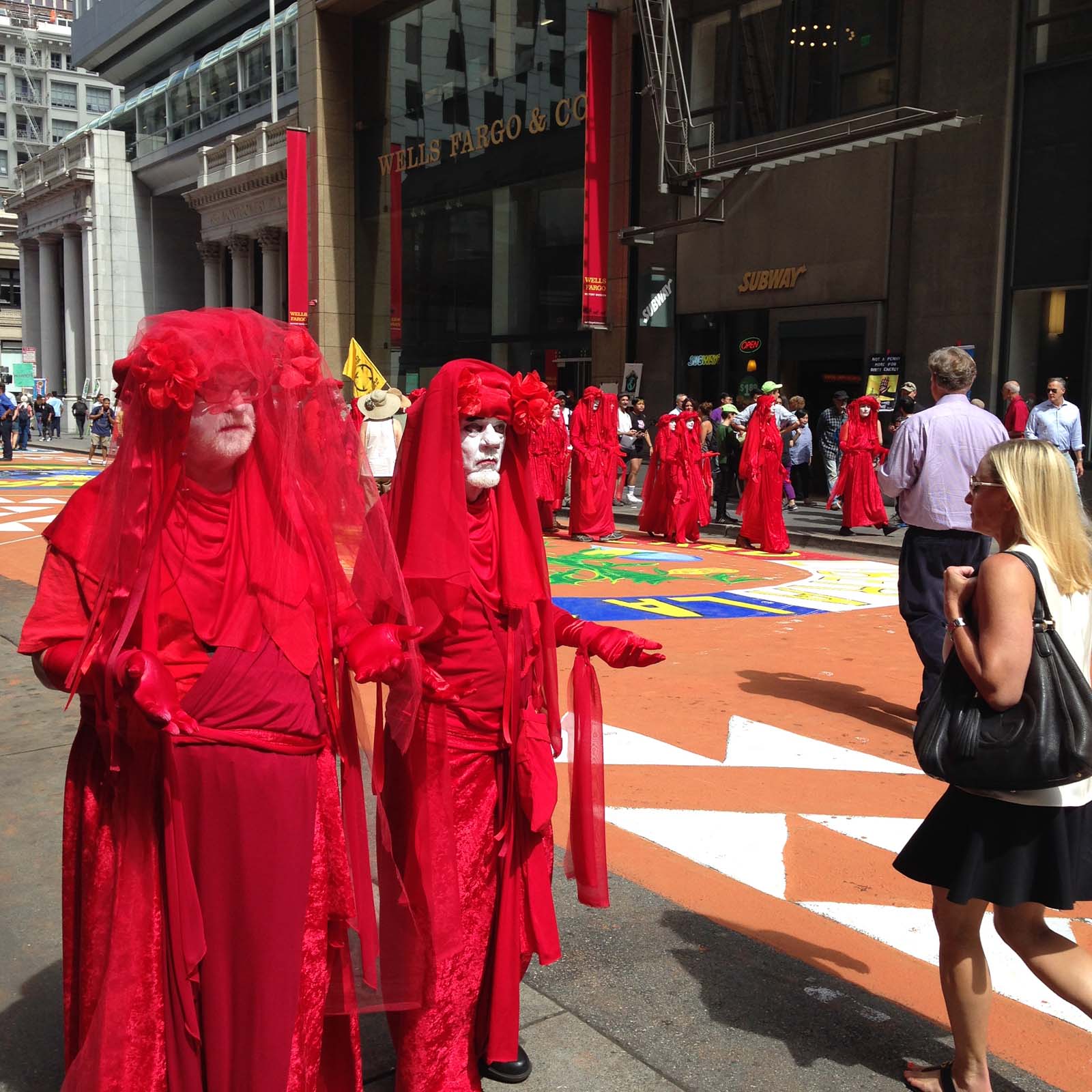









Pingback:We can be whatever we have the courage to see | The Art of the Green New Deal
Posted at 16:22h, 04 September[…] […]